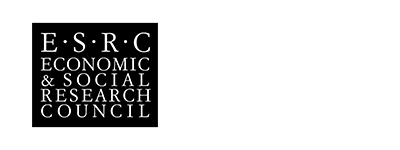Authored by Sarah Bell
It’s National Inclusion Week and with increasing evidence that time spent in nature may have health and wellbeing benefits, we need to ensure these experiences are open to everyone.
With that in mind, I recently joined the ‘Now for Nature’ conference at the Natural History Museum in London, to discuss opportunities for enhancing inclusivity across the nature sector.
The conference was organised by ‘A Focus on Nature’, an inspiring youth-led nature network that aims to support young people with an interest in nature and conservation. They connect young conservationists with experienced professionals, building the skills, knowledge and expertise of people working towards a more sustainable future.
I took part in a panel session chaired by the fantastic Yetunde Kehinde (Action for Conservation Youth Alumnus). It was a privilege to be joined by Hannah Ryan-Leah (Programme Coordinator, Action for Conservation), Alejandro Prescott-Cornejo (Researcher and Photographer, Oxford), Laura Ashfield (Keeping it Wild Project Manager, London Wildlife Trust) and Lydia Allen (Programme Delivery Coordinator, National Youth Agency).
During the session, we discussed a range of challenges and opportunities for enhancing inclusivity in the nature conservation sector. Yetunde asked each of us to reflect on some of the most significant barriers to nature inclusion and access, alongside opportunities for moving beyond these barriers and whose responsibility it is to facilitate this.
Although difficult to do justice to the session in this short piece, I wanted to try and capture two important take-home messages.
The first concerns the economic challenges of promoting genuine inclusivity in the current political climate. For nature enthusiasts from low-income backgrounds, for example, spending months or years completing unpaid internships or further education to secure a job in the sector is often unfeasible.
For those who do manage to do so—often by juggling several low-paid jobs at the same time—the prospect of secure employment in the sector is hindered by its reliance on short-term funding cycles. Invaluable knowledge, enthusiasm, creativity and diversity is therefore being lost.
Until the work of nature education and conservation organisations is properly supported by our political system, it will be challenging to address the fragile economic situations that many organisations face.
The second take-home message concerns the role of human nature in creating unnecessary barriers to participation. This is something I have previously written about in the Sensing Nature project. Exclusion and oppression on the basis of disability is one of several aspects of lived experience that we need to address if we are to foster a more inclusive and diverse nature sector. As noted by prominent disability activist and writer, Eli Clare (2015, page 143):
‘Gender reaches into disability; disability wraps around class; class strains against abuse; abuse snarls into sexuality; sexuality folds on top of race… everything finally piling into a single human body. To write about any aspect of identity, any aspect of the body, means writing about this entire maze.’
In this way, Eli Clare recognises that disability exists alongside a range of other identities, life circumstances and social histories which shape one’s opportunities to be accepted as a valued part of nature care and conservation.
If the nature conservation sector is to genuinely embrace human diversity, organisations need to be willing (and materially able) to listen to rarely heard voices. Importantly, they must also change and adapt in response to what they hear; it’s not enough to recruit or support people from diverse backgrounds to ‘participate’ in the sector if the terms of participation remain the same.
Indeed, if we are to nurture nature for both biodiversity and human diversity, we need to recognise and celebrate the rich and varied ways in which people come to relate to nature. We must respect and harness diverse sensory and cultural histories and welcome new approaches to nature conservation, education and care.



